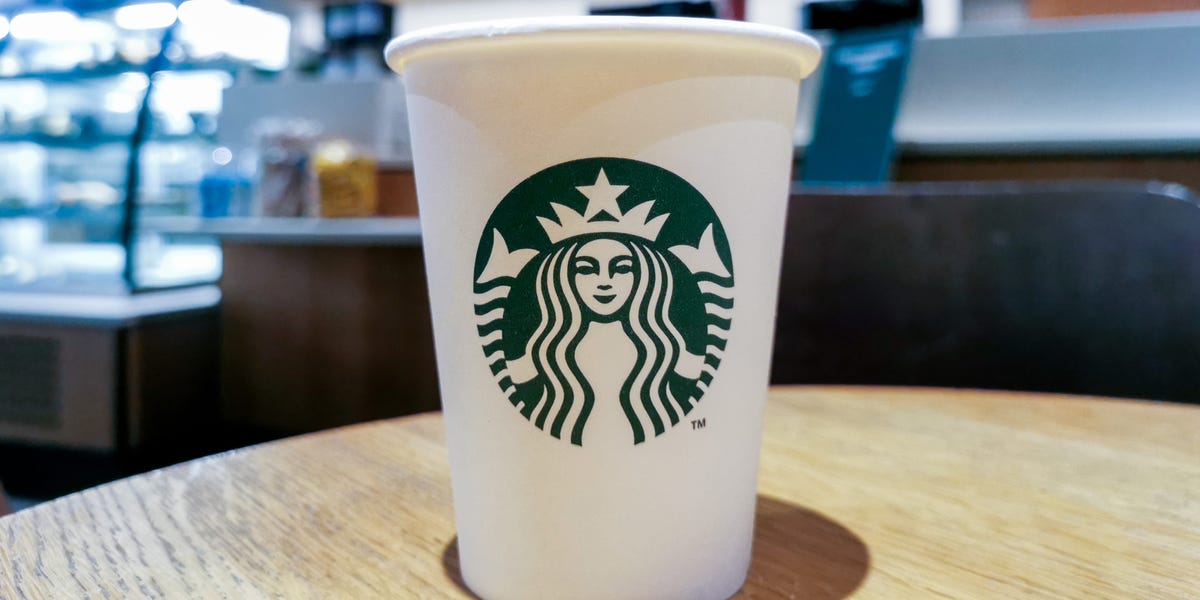Three Starbucks customers have sued the coffee chain in a $5 million class action lawsuit, accusing it of intentionally discriminating against lactose intolerant people by charging them more money for non-dairy milk options.
Lawyers for the customers accuse the coffee giant of raking in more than $1 billion in recent years “as a result of its discriminatory and illegal levying” of the extra charge for non-dairy alternatives, including plant-based or lactose-free milk.
In the lawsuit, which was filed last week in a California federal court, the plaintiffs accuse Starbucks of engaging in “illegal price discrimination” in violation of both the federal Americans with Disabilities Act and the California Unruh Civil Rights Act.
Starbucks’ actions “were willful, wanton, malicious, and intentional, and were done in willful and conscious disregard of the rights of Plaintiffs and the putative class members,” the lawsuit says.
A Starbucks spokesperson declined to comment on the lawsuit, citing pending litigation, but told Business Insider in a statement Wednesday that customers in US Starbucks stores can add up to four ounces of non-dairy milk to hot or iced brewed coffee or tea, cold brew and Americano beverages at no additional charge.
“Starbucks Rewards members can also redeem 25 Stars to substitute non-dairy milk in any beverage where it is not part of the standard recipe,” the spokesperson said. “ Additionally, customers can choose to customize any beverage with a non-dairy milk on the menu for an additional charge.”
The plaintiffs have lactose intolerance or milk allergies
The class action lawsuit was brought by three California residents — Maria Bollinger, Dawn Miller and Shunda Smith — who say they are lactose intolerant or have a milk allergy and have ordered coffee-based, tea-based, and other drinks at Starbucks shops in California since at least 2018.
Since then, the plaintiffs have been charged an extra 50 to 80 cents for each Starbucks drink that they’ve requested to substitute milk for non-dairy alternatives, including soy, oat, coconut, or almond milk, the lawsuit, which seeks to represent a nationwide class of plaintiffs, says.
Starbucks’ extra charge is the same for all non-dairy alternatives, “making no distinction among the costs of the various different” non-dairy products, the complaint says.
“In fact, Starbucks created a separate, higher-priced menu, aimed at customers who cannot ingest milk,” the lawsuit alleges.
The complaint says the average price of a Starbucks coffee drink in 2023 was $3.25, and the surcharge for the non-dairy products could be up to 40% of the average drink price.
“And this surcharge is not justified by the costs of the Non-Dairy Alternatives,” the lawsuit says, arguing that the retail cost of non-dairy options is comparable to dairy products.
The surcharges, the lawsuit says, “are designed to profit from those consumers with lactose intolerance and milk allergies.”
‘This is the essence of intentional discrimination’
Lawyers say in the complaint that Starbucks offers several options at no additional cost when it comes to the content of fat in the milk, but does not offer the same for a lactose-free milk option.
“Lactose intolerance is a disability under the ADA,” the lawyers say in the complaint. It goes on to explain that plaintiffs will “suffer adverse health effects if they ingest milk or milk-containing products, including stomach pain, digestive tract inflammation, bloating, bowel irregularities and vomiting.”
“Defendant is making a choice to impose the Surcharge for necessary beverage modifications for one class of persons with a specific disability, lactose intolerance, while at the same time not imposing any extra charge for those persons with another medical condition,” the suit says. “This is the essence of intentional discrimination.”
Bogdan Enica, one of the attorneys representing the plaintiffs, told BI that the plaintiffs can only use non-dairy products.
“These people don’t have a choice,” said Enica, who was also behind a similar 2022 class action suit against Starbucks and recently brought a similar one filed earlier this year against Dunkin’.
The 2022 Starbucks lawsuit, which was filed in Florida, was voluntarily dismissed by the plaintiff, Enica said.
Meanwhile, a US Justice Department spokesperson told BI on Wednesday that an allergy, including a food allergy, “may be a disability if it substantially limits a major life activity, such as eating, or a major bodily function, such as digestive function.”
“The ADA, of course, provides protections for people with disabilities, including a requirement to make reasonable modifications to ordinary policies or practices,” the spokesperson said.
Dunkin’ was hit with a similar lawsuit this year
Earlier this year, Enica filed a $5 million class action lawsuit against Starbucks competitor Dunkin’ on behalf of 10 plaintiffs, accusing it of discrimination for charging extra for non-dairy alternatives.
For years, activists and the animal rights group PETA have protested against Starbucks for charging extra for non-dairy options.
As BI has previously reported, Starbucks has dropped the extra charges in parts of Europe, but they’ve remained in place in the US.
Read the full article here





